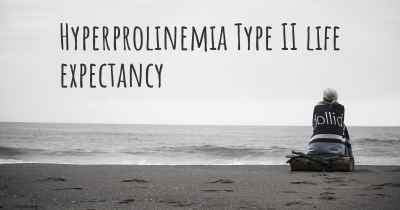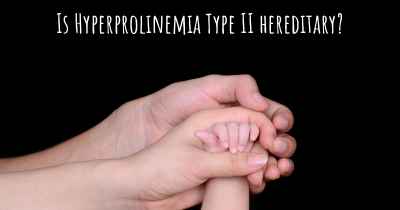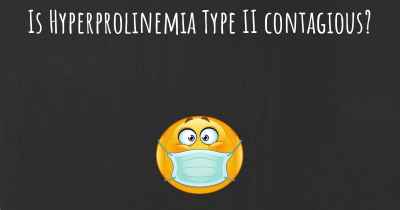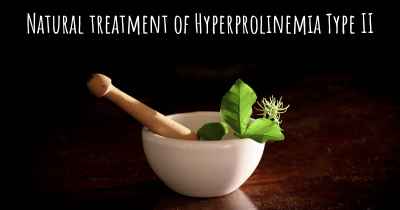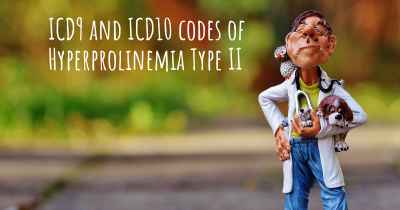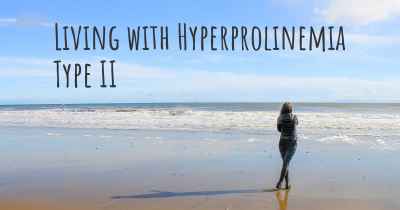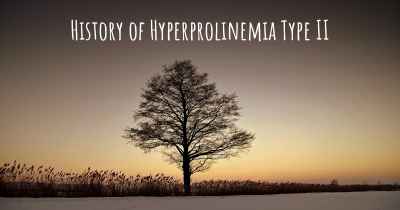Hyperprolinemia Type II diet. Is there a diet which improves the quality of life of people with Hyperprolinemia Type II?
Are you aware of a diet that can improve the quality of life of people with Hyperprolinemia Type II? Is there a diet that is suggested to avoid when having Hyperprolinemia Type II? See if there is a diet that can improve the quality of life of people with Hyperprolinemia Type II, recommended and to avoid food when having Hyperprolinemia Type II

Hyperprolinemia Type II Diet: Improving Quality of Life
Hyperprolinemia Type II is a rare genetic disorder characterized by the accumulation of proline, an amino acid, in the body. This condition is caused by a deficiency of the enzyme pyrroline-5-carboxylate dehydrogenase (P5CDH), which is responsible for breaking down proline. As a result, individuals with Hyperprolinemia Type II may experience a range of symptoms including intellectual disability, seizures, developmental delays, and behavioral issues.
While there is no cure for Hyperprolinemia Type II, managing the condition through a carefully planned diet can significantly improve the quality of life for affected individuals. The primary goal of the diet is to reduce proline intake and minimize its accumulation in the body. Here are some dietary recommendations that can help:
- Low-Proline Foods: The cornerstone of the Hyperprolinemia Type II diet is to limit the consumption of proline-rich foods. These include meat, dairy products, eggs, fish, legumes, and certain grains such as wheat and oats. Instead, focus on low-proline alternatives such as fruits, vegetables, rice, and corn.
- Protein Restriction: Since proline is an amino acid found in proteins, it is important to moderate protein intake. Consult with a healthcare professional or a registered dietitian to determine the appropriate amount of protein for the individual's age, weight, and overall health.
- Supplementation: Due to the restricted intake of certain food groups, it may be necessary to supplement the diet with essential nutrients. This can include vitamins, minerals, and amino acids that are limited in the low-proline diet. However, supplementation should only be done under the guidance of a healthcare professional.
- Hydration: Maintaining proper hydration is crucial for individuals with Hyperprolinemia Type II. Drinking an adequate amount of water helps flush out excess proline from the body and supports overall health. Encourage regular water intake throughout the day.
- Individualized Approach: Each person with Hyperprolinemia Type II may have different dietary needs and tolerances. It is essential to work closely with a healthcare team, including a registered dietitian, to develop an individualized meal plan that meets the specific requirements of the individual.
While adhering to a strict diet is essential for managing Hyperprolinemia Type II, it is equally important to consider the overall well-being of the individual. Here are some additional tips to enhance the quality of life:
- Regular Exercise: Engaging in physical activity can have numerous benefits, including improved cognitive function, mood regulation, and overall well-being. Encourage age-appropriate exercise and activities that the individual enjoys.
- Psychological Support: Living with a rare genetic disorder can be challenging, both for the affected individual and their family. Seek psychological support through counseling or support groups to address any emotional or psychological needs.
- Education and Awareness: Educate yourself, family members, and caregivers about Hyperprolinemia Type II to better understand the condition and its management. Increased awareness can lead to better support and improved outcomes.
- Regular Medical Check-ups: Schedule regular visits with healthcare professionals to monitor the individual's overall health, growth, and development. This allows for early detection of any potential complications and ensures appropriate interventions.
Remember, the Hyperprolinemia Type II diet is a lifelong commitment, and strict adherence is crucial for optimal management. However, with proper guidance, support, and a well-rounded approach to care, individuals with Hyperprolinemia Type II can lead fulfilling lives.
